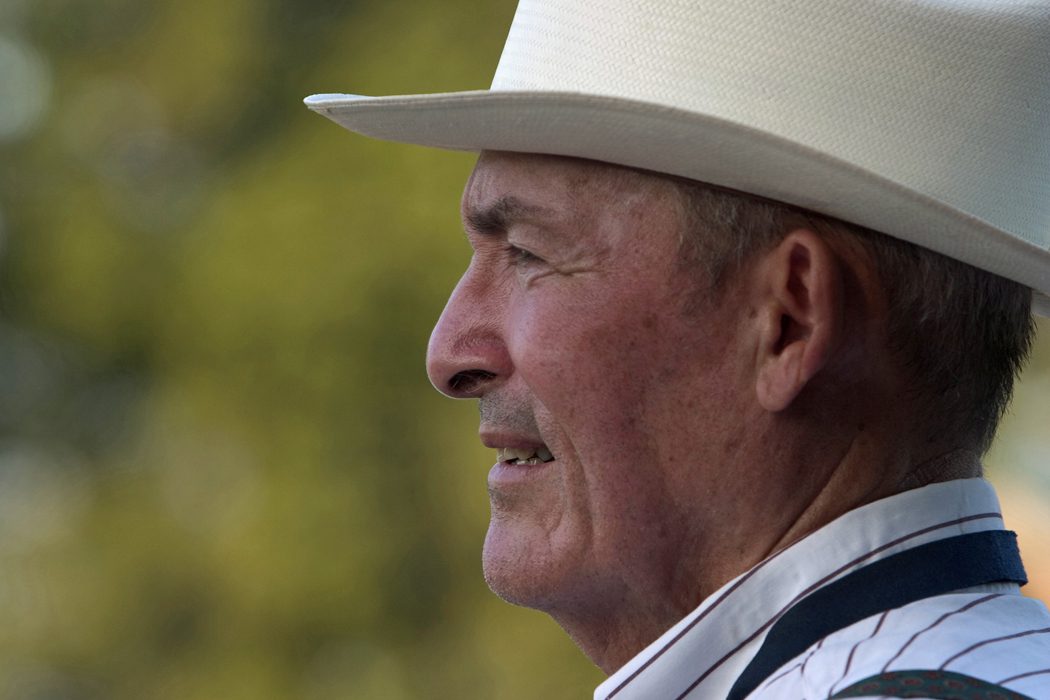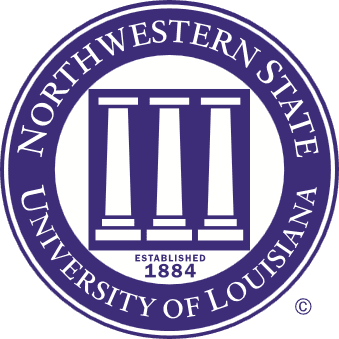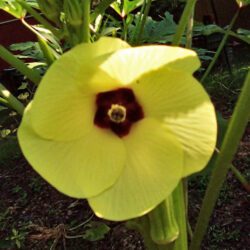by Leah Jackson
Dr. Kathleen Byrd established a scholarship in memory of her late husband, the archaeologist Robert W. Neuman, through the Northwestern State University Foundation that will benefit a student majoring in anthropology, sociology, or history. In addition, Byrd established the Robert W. Neuman Program Enhancement to support the preservation of documents and organization of cultural material related to the Melrose Collection and the Association for the Preservation of Historic Natchitoches.
The scholarship will be awarded to a sophomore, junior, or senior level student. Sophomores must maintain a 2.5 or better grade point average. Juniors and seniors must maintain a 3.0 or better grade point average. Preference will be given to students engaged in an internship related to anthropology, sociology or history.
Byrd said the ideal recipient would be a student interested in a career in anthropology, sociology or history but needs extra financial help. The internship could be at the Cane River National Heritage Area, Melrose Plantation, state or national parks, or local organizations such as the Ben Johnson Education Center.
“Going forward with a B.A. doesn’t get one far, but students who have interned with an organization and have hands-on experience have an edge in getting started in their careers. It greatly expands possibilities for job opportunities,” Byrd said.
The Robert W. Neuman Program Enhancement will be administered by the head archivist in the Cammie G. Henry Research Center which is housed in NSU’s Eugene P. Watson Memorial Library. Byrd said she and her husband spent many hours doing research in the archives.
Byrd serves on the board of the Association for the Preservation of Historic Natchitoches, which owns and maintains Melrose Plantation. She hopes the program enhancement will support the archives and the Cammie G. Henry Collection housed there. Byrd consulted NSU’s Head Archivist Mary Linn Wernet about ways to increase accessibility to the Melrose collection, a large and unique assortment of Louisiana documents, rare books and other items of historic and cultural interest, that is the core of the Cammie G. Henry Research Center’s holdings.
Information on the Cammie G. Henry Research is available at https://libguides.nsula.edu/CGHRC.
Neuman was born in Chicago and grew up in St. Petersburg, Florida. In 1949, he enrolled in the pre-med program at Tulane University but during his junior year took an elective course in South American Indians. He changed his major and spent the next summer on an archaeological field project at rock shelters in the Ozark Mountains of Missouri, an experience that determined his career. After graduating from Tulane in 1954, he enrolled in the anthropology program at Louisiana State University where he continued to spend summers at archaeological excavations at times along the Republican River in Nebraska and the McKean site in Wyoming.
In 1956, he was offered a position as staff archaeologist for the Smithsonian Institution’s River Basin Survey. During his time with SI, Newman directed archaeological investigations in Kansas, Nebraska, Iowa, Minnesota, South Dakota, North Dakota, Montana, Wyoming, Alabama and Georgia. He referred to himself as a “dirt archaeologist” and his crews were often the first in the field in the spring and the last out in the fall. He became interested in the history and current conditions of the Plains Indians and whenever possible employed Native Americans on his crews, especially the Sioux.
From 1956 to 1967, Bob was chairman of the Radiocarbon Section, Smithsonian Institution, Missouri River Basin Chronology Program and from 1963-1966 assistant editor for the “Plains Anthropologist.” He completed his career with the Smithsonian Institution in 1967 as assistant chief of the Missouri Basin Project.
Neuman published widely while with the Smithsonian on many topics. Although he worked at all types of prehistoric sites, his primary research interest was the Woodland manifestations on the Great Plains, particularly burial mounds and campsites in Nebraska and the Dakotas. He described the results of his investigations and of this archaeological manifestation in his seminal work, “The Sonota Complex and Associated Sites on the Northern Great Plains,” published by the Nebraska State Historical Society.
In 1967, Neuman accepted a position as curator of anthropology at LSU where he was tasked with organizing the WPA’s archaeological collections, including artifacts, field notes, maps and photographs and with organizing the extensive ethnography collections housed at the university. He compiled “A Bibliography Relative to Indians of the State of Louisiana” which was published in 1969. He would go on to do extensive archival studies as an expert witness for the Department of Justice in a Caddo tribe’s lands claim case.
During his time at LSU, Neuman conducted archaeological field research in Louisiana, Texas, Mississippi, and Arkansas. These excavations and other projects formed the basis of numerous M.A. theses at LSU and other universities as well as papers, journal articles and archaeological reports. In 1984, Bob published “An Introduction to Louisiana Archaeology,” a compilation of his research and those of others into the state’s prehistoric human past. His was the first full-length book devoted to Louisiana archaeology. He routinely attended regional archaeological meetings and the SAA’s annual meeting usually presenting a paper, published in leading archaeological journals and served on numerous boards and commissions. But he never lost his interest in human adaptation to grasslands and was able to expand his knowledge with field seasons on the pampas, the grasslands of Argentina and on the steppes of northwest China.
While at LSU, Neuman taught classes in Louisiana archaeology as well as independent study courses and team-taught an introduction to museology. His courses always included field trips. He believed it was important for the students to see archaeological sites, not just learn about them in the classroom.
Neuman was also committed to sharing his love for archaeology with the public and always had time to talk with those interested in learning about Louisiana’s past. As curator of anthropology, he developed a traveling exhibit on Louisiana archaeology and Indians that toured libraries, schools and banks throughout the state providing tens of thousands of Louisiana residents an opportunity to see artifacts recovered from archaeological sites and to learn about the past. He was one of the early members of the Louisiana Archaeological Society, always attending the society’s annual meetings and usually presenting a paper, and for 10 years served as editor of “Louisiana Archaeology,” the organization’s journal. Bob received the James A. Ford Award, the highest honor that the LAS can bestow on one of its members. He also received an award from the Foundation for Historical Louisiana for “making the past known and useful to the present.”
When Byrd accepted a position at NSU in 1994, Neuman retired from LSU and the couple moved to Natchitoches where they raised Appaloosa horses and traveled. Even in retirement, Neuman published and presented papers at meetings. After suffering from a series of medical problems, he passed away of a drug-resistant strain of pneumonia on September 9, 2019, at age 88.
Friends who wish to make a contribution to the Robert Neuman Scholarship or Program Enhancement can do so by visiting www.northwesternstatealumni.com.
Visit Northwestern State University Website: https://www.nsula.edu/


























